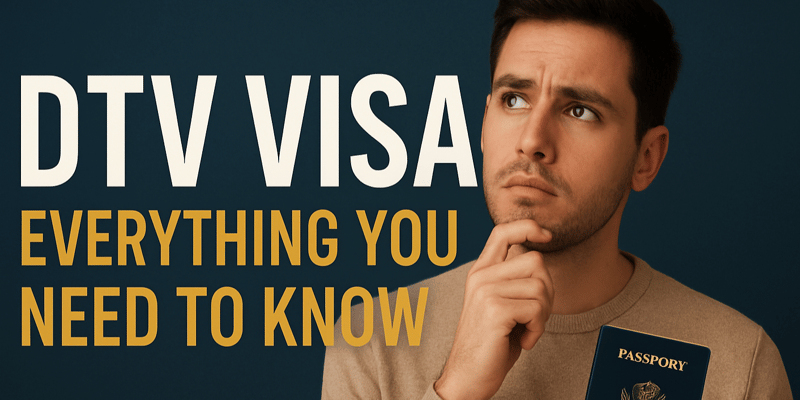
Whether you’re a tourist thinking of extending your stay, a digital nomad hunting for a tropical base, or an expat planning a long-term move to Thailand, the Destination Thailand Visa (DTV) is one of the most talked-about pathways right now. In this friendly, up-to-date guide, I will walk you through everything: what the DTV is, who qualifies, how to apply, costs, common mistakes, and tips.
The team at Thai Kru is ready to help you. Contact Numfhon or Ericson to get help now.

Numfhon

Ericson
The Destination Thailand Visa (DTV) is Thailand’s newer visa category, designed to offer longer-term stays for certain categories of people who may wish to stay in Thailand beyond the typical tourist visa duration. It’s especially attractive to:
Here are the main categories and eligibility points you should know:
This category is for people participating in Thai cultural, medical, or educational programs, or engaging in activities that promote “soft power.” Examples:
You’d need proof of acceptance, enrollment, or official invitation.
Always check with the specific Thai embassy or consulate in your country because requirements may vary slightly.
Here is common “People Also Ask” questions:
Can I apply for DTV from inside Thailand?
No — in all cases, you must apply from outside Thailand at a Thai embassy or consulate in another country.
Can I work for a Thai company with DTV?
No — you cannot hold a Thai work permit under DTV, and your income must come from foreign clients or employers.
Do I need to maintain a certain bank balance all the time?
You’ll need to show sufficient funds at application, and possibly at extension time.
What happens if my application is rejected?
You can usually reapply after fixing any issues (e.g. missing documents, insufficient proof). However, the fee paid is non-refundable.
Can I switch categories after applying (e.g. from soft power to remote work)?
No — the category (remote work / cultural / etc.) you choose at application determines your path. Switching mid-process is not generally allowed.
Is there a minimum monthly income requirement?
Not necessary. The primary requirement is proof of financial stability (assets, funds). Some embassies may have stricter guidelines.
Will I become a Thai tax resident?
Possibly. If you stay more than 180 days in a calendar year, Thai tax law might consider you a tax resident. It’s wise to consult a tax advisor in Thailand if your stay is long-term.
Does the DTV visa require a return flight?
No, the DTV does not require a return flight, as it is a long-term, multiple-entry visa valid for up to 180 days per visit. However, airline staff may be unfamiliar with the DTV, so it is recommended to print proof of your DTV and be prepared to show it to airline staff at check-in to explain that you have a valid long-term visa.
How long does it take to get DTV approval?
It may take between 2 to 4 weeks to receive your DTV approval depending on each consulate.
Can a DTV visa holder open a bank account?
Unfortunately, no. The DTV is considered a long-term tourist visa, so you cannot open a Thai bank account with this visa.
Moving to Thailand — especially using a long-term visa like DTV — can feel overwhelming. That’s where we step in as your expert visa assistant and guide.
If you'd rather avoid guesswork and ensure your paperwork is spot-on from the start, book a consultation with us here. We'll walk you through every step so your DTV journey is smooth, confident, and stress-free.
"The Thai Kru team provided awesome service, thank you! I highly recommend."
"Recommend this company, they are very helpful!"
"Thai Kru is amazing!! Great customer service and content. I review their Business for topics such as: Visa options and processes. Very fast!!! “Cost of living” assessment tool to gauge your own financial capacity in different region’s of Thailand. A must for all!! Insurances Banking options and criteria And Accommodation. I highly recommend this business. So…”what are you waiting for?”"
The team at Thai Kru is ready to help you. Contact Numfhon or Ericson to get help now.

Numfhon

Ericson